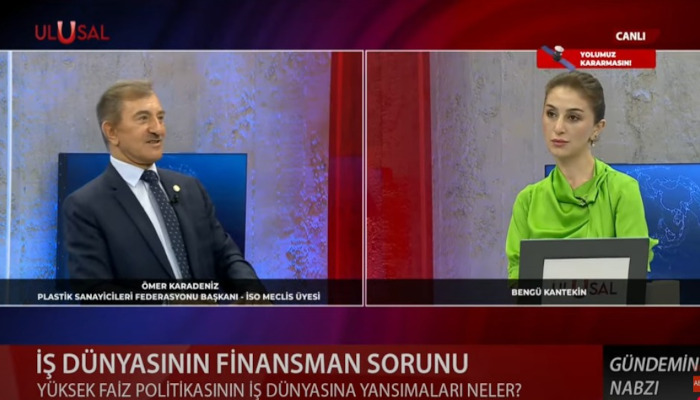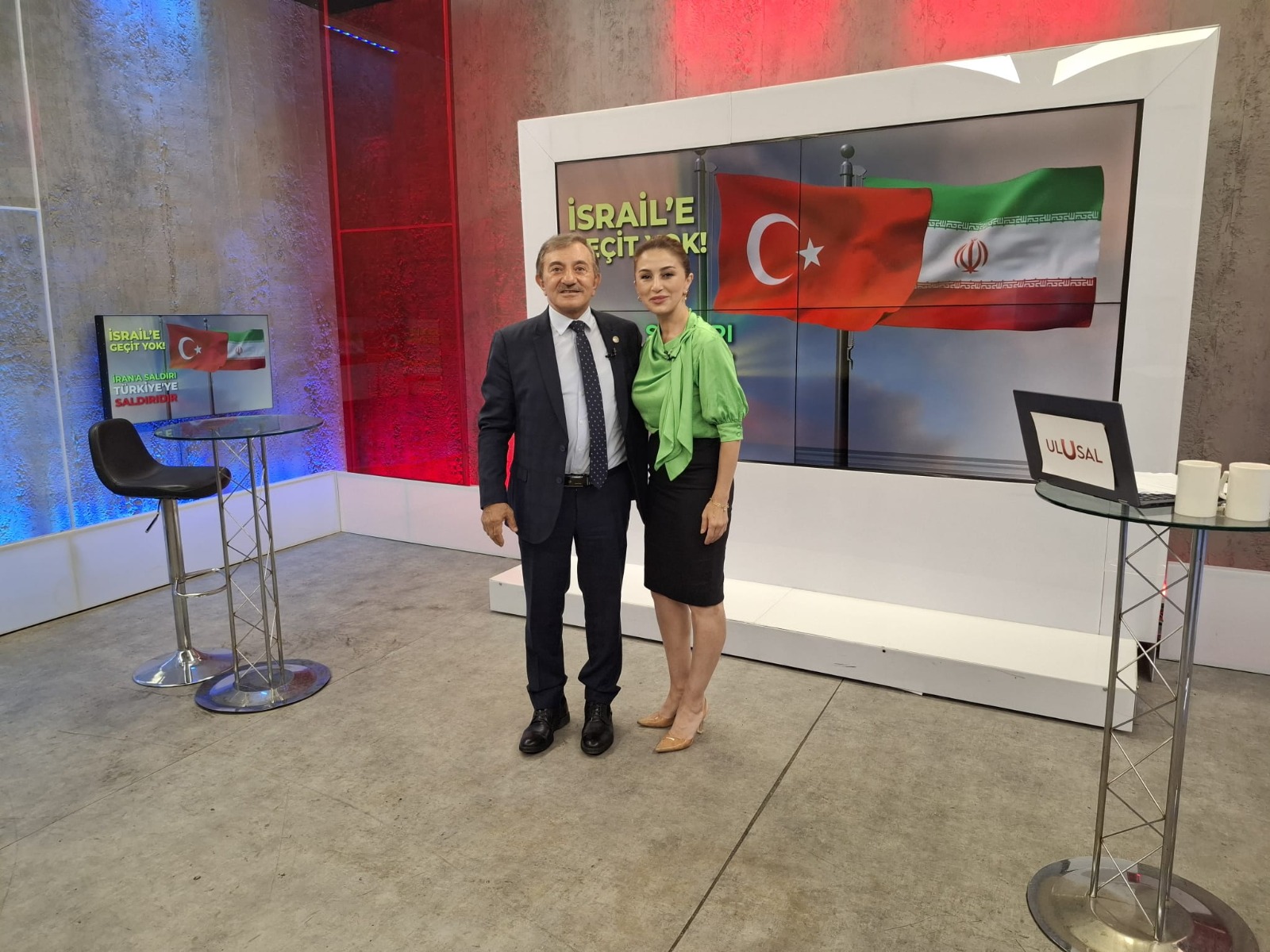
Ömer Karadeniz, Chairman of the Plastic Industrialists Federation (PLASFED), shared the economic challenges facing Turkey's industry and proposed solutions on the Agenda's Pulse program aired on Ulusal Kanal. Responding to questions from program host Bengü Kantekin, Karadeniz emphasized that difficulties in access to finance negatively affect production capacity. He stated that high interest rates have brought investments to a standstill.
On June 25th, Ömer Karadeniz, Chairman of the PLASFED Board of Directors, evaluated the recent economic difficulties faced by Turkey's industry and proposed solutions on the Agenda's Pulse program on Ulusal Kanal. Responding to questions from program host Bengü Kantekin, Karadeniz noted the negative impact of access to finance difficulties on production capacity, stating, "The industry has the appetite and potential to produce, but without support mechanisms, it is impossible to unleash this potential."
Karadeniz pointed out that developments in domestic politics and the Central Bank's interest rate decisions have put significant pressure on industrialists. He stated, "The 1.8% decline in industrial production is not just a data point; it also signals structural issues such as a decrease in orders, a contraction in capacity utilization, and weakened investment appetite," adding that PMI data staying below the threshold of 50 supports this picture.

“Turkey can be a production base”
Reminding that Turkey's geostrategic position holds great opportunities, Karadeniz suggested that with the right policies, Turkey could become a regional production base. He said, "We are located in a geography that very few countries possess, between East and West. If this strategic advantage is supported by production and export policies, Turkey can become a key player in global supply chains."
“There is a serious problem in accessing finance”
Emphasizing that the biggest issue currently facing industrialists is access to finance, Karadeniz noted that high interest rates have brought new investments to a halt. He mentioned that a large portion of around 1,700 manufacturers affiliated with PLASFED face difficulties accessing credit, stating, "Without financing, there can be no production or exports."
The PLASFED President emphasized important proposed solutions to increase Turkey's industrial production capacity and overcome financing issues. Karadeniz stressed the need for long-term, low-interest, and collateral-supported special financing packages to ensure production-oriented growth. He asserted, "Financial models must be directed towards production and exports to keep our industrialists' investment appetite alive."
Karadeniz also expressed that the basic input costs such as electricity, natural gas, and water in industrial zones should be rearranged in favor of producers, stating that this step would reduce production costs and enhance competitiveness.
Pointing out that investment incentives should not be limited to organized industrial zones, Karadeniz said, "Investment can spread to every corner by offering attractive incentives in small industrial sites."
Stating that public-private sector collaborations between the Ministry of Industry and development agencies need to be increased, Karadeniz highlighted that the widespread support for digital transformation and green production is critical for the future of the industry.
Translated by Artificial Intelligence
